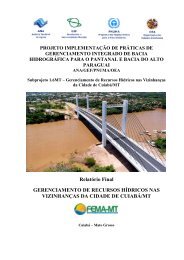Rt€@lll
Rt€@lll
Rt€@lll
Create successful ePaper yourself
Turn your PDF publications into a flip-book with our unique Google optimized e-Paper software.
-15<br />
It is possible to eeLablish some general guidelines for adapting ecosystem management<br />
to islands. lntegration of development needs and multiple use of resources are essential on an<br />
island. Land ereas are too limited m all but the largest islands !o permit the allocation of<br />
aignificant land areas to single uses as is commonly done on continents. For instance,<br />
agricultural land may need to be managed simultaneously for water catchment and as habitat<br />
for an endangered bird species, with the development of the land being modified to be<br />
compatible with its other roles. Many overtapping uses of the same area or resource will be<br />
the rule. Planning will need to look at the island as a whole, to ensure that all needa of man<br />
and the natural environment are provided for, and to prevent any one activity from<br />
threatening other essenlial resources. This may require modification of the land tenure and<br />
land use systems and legislation imported by colonial governrnents which have tended to<br />
define ownership in absolute'rall or nothing" terms. What islands need are epproaches closer<br />
to msny traditional land tenure systems, where, within a general context of family or tribal<br />
ownership, it was possible to hold certain limited rights, zuch as to farm for the duration of<br />
the crop, to hunt or io collect building materials. Such systems encouraged multiple<br />
compatible uses, and allowed greater flexibility and efficiency in land use. For instance,<br />
rotating gardens and extended fallows allowed traditional agriculture to respect the limited<br />
fertility of many island soils.<br />
Development has concentrated many human activities in the coastal zone, creating<br />
resource use conflicts. Such zones must be managed as an integrated system to ensure that<br />
terrestrial development is compatible with reef and lagoon managemenl.<br />
The scattered isolated nature of island communities places more responsibility for<br />
environrnental management at the local level, and prevents the kind of centralization common<br />
in the governrnent structures and bureaucracies of continental developed countnies.<br />
Traditionally most small island communities had their own experts on fishing, farming, the<br />
forests, liand use, etc., but colonization and modern systems of education have broken down<br />
these traditional systems and prevented the transmission of lraditional knowledge to<br />
succeeding generations. It will be necessary to recreate this local expertise, bringing it<br />
together wilh a modern scientif ic understanding of resource management.<br />
The inherenL limits of the island situation will make it recessary to restrici some kinds<br />
of development. Toxic and hazardous chemical use, for instance, must be restricted ot<br />
prohibited where a single accident could contaminate an entire lagoon or water supply. Single<br />
crop agriculture may be too vulnerable given the inherent variability in many island<br />
environments; extensive land clearing and uncovering of soils may damage waler catchments<br />
and produce irreparable soil loss. Many modern technologies are inappnopriate in an island<br />
context where they have a short useful life and are beyond the maintenance capabilities of<br />
small island communities. Tley are only a waste of capital and foreign exchange. Fon<br />
example, a rnodern automobile designed for driving all day on a superhighway may rust out in<br />
one to two years after going 101000 km on an atoll with l0 km of road and a speed limit of<br />
40 km/hr.<br />
Other types of development may solve long-standing island problems and should be<br />
encouraged. Modern communications technologies may permit creative solutions redueing the<br />
isolation of island communities. Microcomputers may similarly be able to comperrsate in some<br />
ways for the lack of specialization inherent in small island societies.<br />
Such approaches working towards the sustainable management of island ecosystems and<br />
towards appropriate development within island limits should help to reverse the lrend towards<br />
decreasing island self-sufficiency and permit island people to face the future with confidence<br />
and dignity.


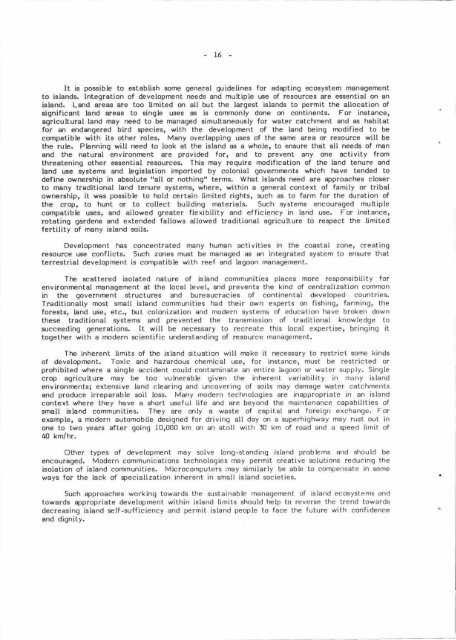
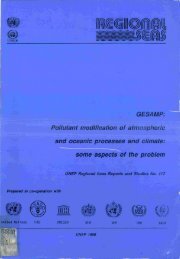
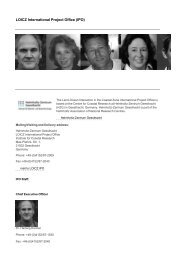
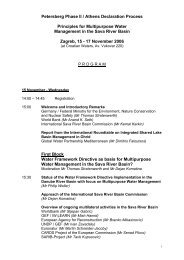
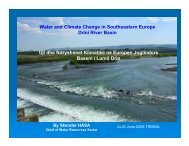
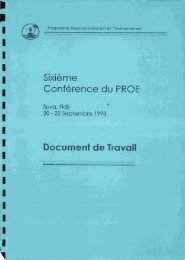
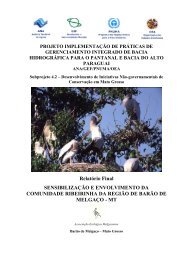
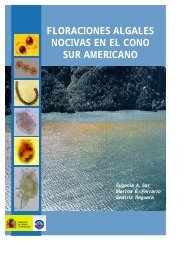
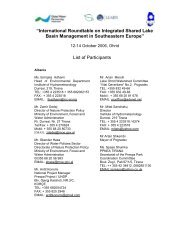
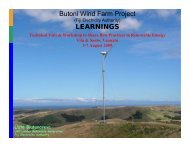
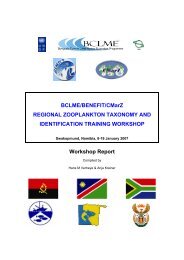
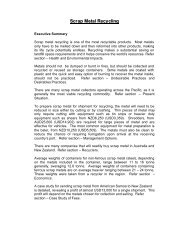
![R]€@lll](https://img.yumpu.com/7594335/1/175x260/reurlll.jpg?quality=85)
